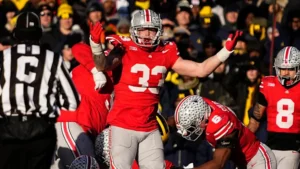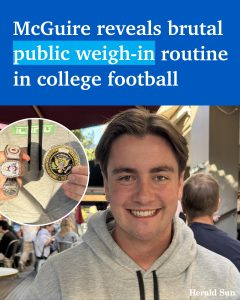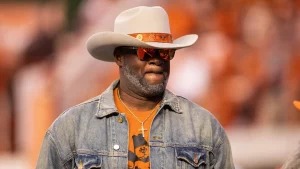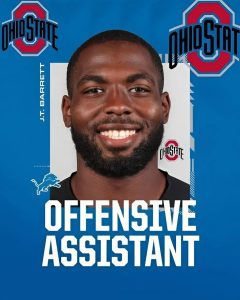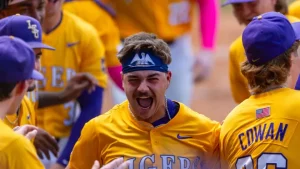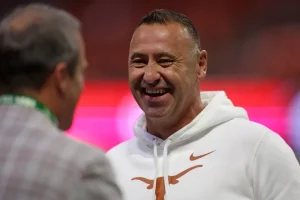Statement on the sale of alcoholic beverages at Notre Dame basketball, football and hockey games

The University of Notre Dame has long been a bastion of tradition, academic excellence, and a sense of community rooted in its Catholic heritage. As one of the most storied institutions in college sports, particularly in football, basketball, and hockey, it has established a powerful and lasting legacy of excellence on and off the field. Central to this legacy is the university’s commitment to the student-athlete experience, maintaining strong ethical standards, and fostering an environment of safety, respect, and inclusivity for its students, alumni, and fans. One of the most discussed and debated aspects of college sports culture has been the sale and consumption of alcoholic beverages at sporting events. In 2000, Notre Dame made a significant shift in its policy regarding the sale of alcohol at basketball, football, and hockey games, a decision that invited both praise and criticism from various stakeholders, including students, alumni, faculty, and the general public.
This statement seeks to provide an in-depth exploration of the university’s decision to sell alcoholic beverages at athletic events, the reasons for and against such a policy, the potential impact on the community, and the ethical considerations that come into play when balancing tradition with modern-day societal norms.
The History of Alcohol at College Sports Events
The history of alcohol at college sports events is a complex and evolving story. For decades, many universities, including Notre Dame, adhered to policies that strictly prohibited the sale and consumption of alcoholic beverages at on-campus sporting events. This was largely based on concerns about student and fan safety, maintaining the dignity of the athletic programs, and aligning with the values of the institution.
However, over the years, the landscape of college athletics and the role of alcohol in fan culture began to change. The commercialization of college sports, especially with the increasing influence of media, television contracts, and corporate sponsorships, has led to greater visibility and financial investments in athletic programs. As a result, many universities began to reconsider their stance on alcohol sales at athletic events, viewing it as a potential revenue stream and a way to improve the overall fan experience.
Notre Dame, however, remained relatively conservative in its approach to alcohol sales at sporting events for many years. The university’s commitment to maintaining a family-friendly atmosphere, in alignment with its Catholic values, made it hesitant to endorse or profit from alcohol consumption at campus sporting venues.
The 2000 Policy Change
In 2000, Notre Dame made the landmark decision to allow the sale of alcoholic beverages at home basketball and hockey games in the Joyce Center, as well as in certain areas of the football stadium for select events. This decision was part of a broader trend within collegiate athletics as universities across the nation began to reevaluate their policies regarding alcohol. Several factors contributed to this policy change at Notre Dame, each with its own set of implications for the university, its students, and its broader community.
Factors Leading to the Policy Change
-
Financial Considerations
One of the primary motivations for allowing alcohol sales was the potential for increased revenue. College sports, especially at a powerhouse like Notre Dame, are big business. The revenue generated from ticket sales, merchandise, and, increasingly, alcohol sales at games could provide an additional source of funding for the athletic department, potentially supporting scholarships, facilities upgrades, and other investments. As the college sports landscape became more commercialized, many programs looked for ways to maximize their profits, and alcohol sales at games became a key revenue stream for other programs across the country. -
Changing Social Norms
By the late 1990s, attitudes toward alcohol consumption had begun to shift. While concerns about underage drinking, alcohol abuse, and fan behavior remained prevalent, many universities realized that alcohol was a significant part of the fan experience at many other sporting events, especially at professional games. Many universities, including Notre Dame, saw that alcohol consumption was not necessarily the root of fan misbehavior, but rather an element of the social experience that could be regulated and controlled in a way that didn’t compromise the integrity of the institution’s values. -
Fan Experience and Satisfaction
For many fans, particularly those who were of legal drinking age, alcohol is an integral part of the live sports experience. The decision to allow alcohol sales was seen as a way to enhance the overall fan experience, particularly for alumni and older students who were accustomed to alcohol being a part of major sporting events. The university’s hope was that by creating designated areas for alcohol consumption, it could foster a more controlled and enjoyable environment for these fans without compromising the family-friendly atmosphere that Notre Dame cherished. -
Increasing Competition Among Universities
As other top-tier universities and athletic programs began allowing alcohol sales at their sporting events, Notre Dame found itself in a position where it could no longer ignore the growing trend. Schools like the University of Michigan, Ohio State University, and the University of Notre Dame’s primary rival, the University of Southern California, had all allowed alcohol sales for several years, and many Notre Dame fans and alumni were starting to question the university’s decision to maintain a ban. In the competitive world of college athletics, both in terms of fan experience and financial sustainability, it became increasingly difficult for Notre Dame to maintain its restrictive policy.
The Debate: Pros and Cons of Alcohol Sales at College Sports Events
The decision to sell alcohol at Notre Dame games was not without its controversy. While some saw it as a necessary modernization of the fan experience and an opportunity to increase revenue, others expressed concern about its potential negative impact on the university’s image, the safety of its fans, and its ethical commitment to its Catholic identity. Below is a breakdown of the primary arguments on both sides of the debate.
Pros of Alcohol Sales
-
Increased Revenue for the Athletic Department
The most direct benefit of alcohol sales is the additional revenue generated. College sports programs face substantial costs in operating their athletic departments, and alcohol sales at sporting events have proven to be a significant source of funding. This additional revenue can be used to fund scholarships, improve facilities, and support a variety of student-athlete initiatives, thus benefiting the university and its student body. -
Enhanced Fan Experience
Alcohol is a staple of the professional sports experience, and many college sports fans enjoy the opportunity to have a drink while watching the game. The sale of alcohol at games provides an added layer of enjoyment for legal-age attendees, helping to create a more social and festive atmosphere. In some cases, this can also help improve overall attendance and retention, particularly for alumni who may have developed a tradition of attending games with friends or family. -
Controlled Environment
By providing alcohol in designated areas within the stadium or arena, the university can monitor consumption and ensure that it is done responsibly. Rather than driving fans to consume alcohol in unsupervised environments or in parking lots before the game, allowing alcohol sales in the venue itself can help reduce the chances of overconsumption, public intoxication, and other unsafe behaviors. -
Normalization of Alcohol in College Sports Culture
As the broader culture of college sports has become more accepting of alcohol at games, universities that continue to prohibit alcohol may feel disconnected from the evolving nature of sports fandom. Allowing alcohol sales can signal that the university is in step with the cultural norms of other major programs, which could be important for maintaining its competitive edge both in terms of fan engagement and recruiting.
Cons of Alcohol Sales
-
Risks of Overconsumption and Fan Safety
One of the most significant concerns about alcohol sales at sporting events is the potential for overconsumption and its effects on fan behavior. While alcohol can enhance the social aspect of a game, excessive drinking can lead to rowdy behavior, fights, and public disturbances. The safety of students, fans, and the general public is of paramount importance, and there is always a risk that alcohol could exacerbate these issues. -
Contradiction with Catholic Values
As a Catholic institution, Notre Dame is committed to upholding values that promote the well-being of individuals and the community. Many critics argued that the sale of alcohol at sporting events could be seen as contradictory to these values, particularly in light of the Catholic Church’s stance on alcohol abuse. There was concern that by selling alcohol, the university might send the wrong message about responsibility and moderation. -
Pressure on Students
While the policy change initially applied to alumni and fans, there was concern about the potential for trickle-down effects on students. The presence of alcohol could create an expectation among students that drinking is part of the “college sports experience.” This could lead to increased pressure for students to drink in order to fit in, which could have negative consequences for the health and safety of the student body, particularly with regard to binge drinking and alcohol-related accidents. -
Potential for Negative Publicity
Notre Dame’s decision to sell alcohol was met with some negative press, both from within and outside the university community. Some alumni and faculty members feared that the sale of alcohol could tarnish the institution’s reputation, especially among those who felt that the university should hold itself to a higher moral standard. Negative incidents at games, such as public intoxication or fan misconduct, could contribute to a perception of Notre Dame as less of a family-oriented environment.
The decision to sell alcoholic beverages at Notre Dame’s basketball, football, and hockey games in 2000 was a landmark policy shift that reflected broader societal changes, financial pressures, and evolving attitudes toward alcohol in college sports. The university’s actions sparked a vigorous debate about the balance between tradition and modernity, between financial sustainability and ethical considerations, and between the desires of fans and the core values of a Catholic institution.
While there are clear benefits to the sale of alcohol, including increased revenue and an enhanced fan experience, there are also significant concerns related to safety, the integrity of the university’s values, and the potential for negative consequences within the student body.
